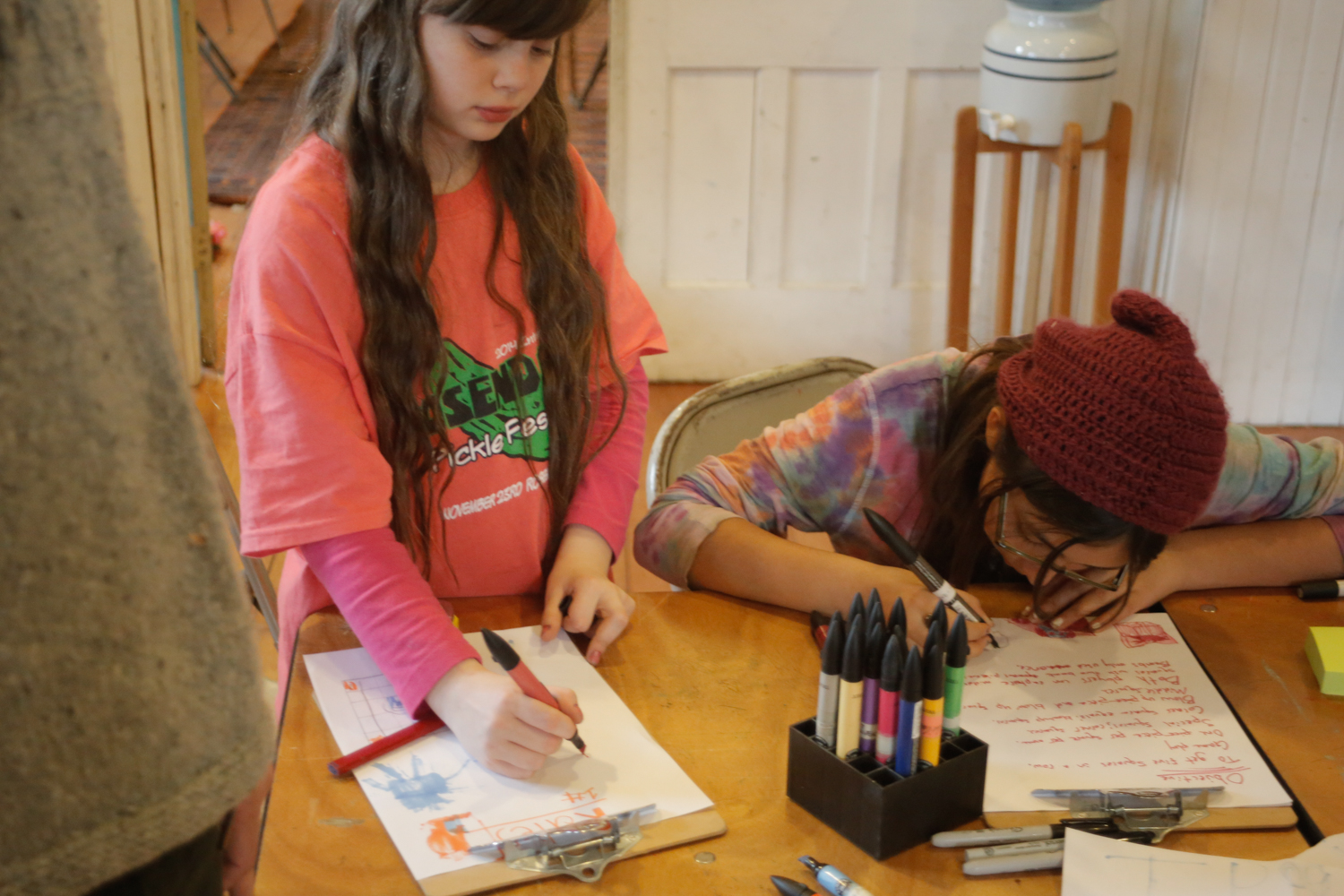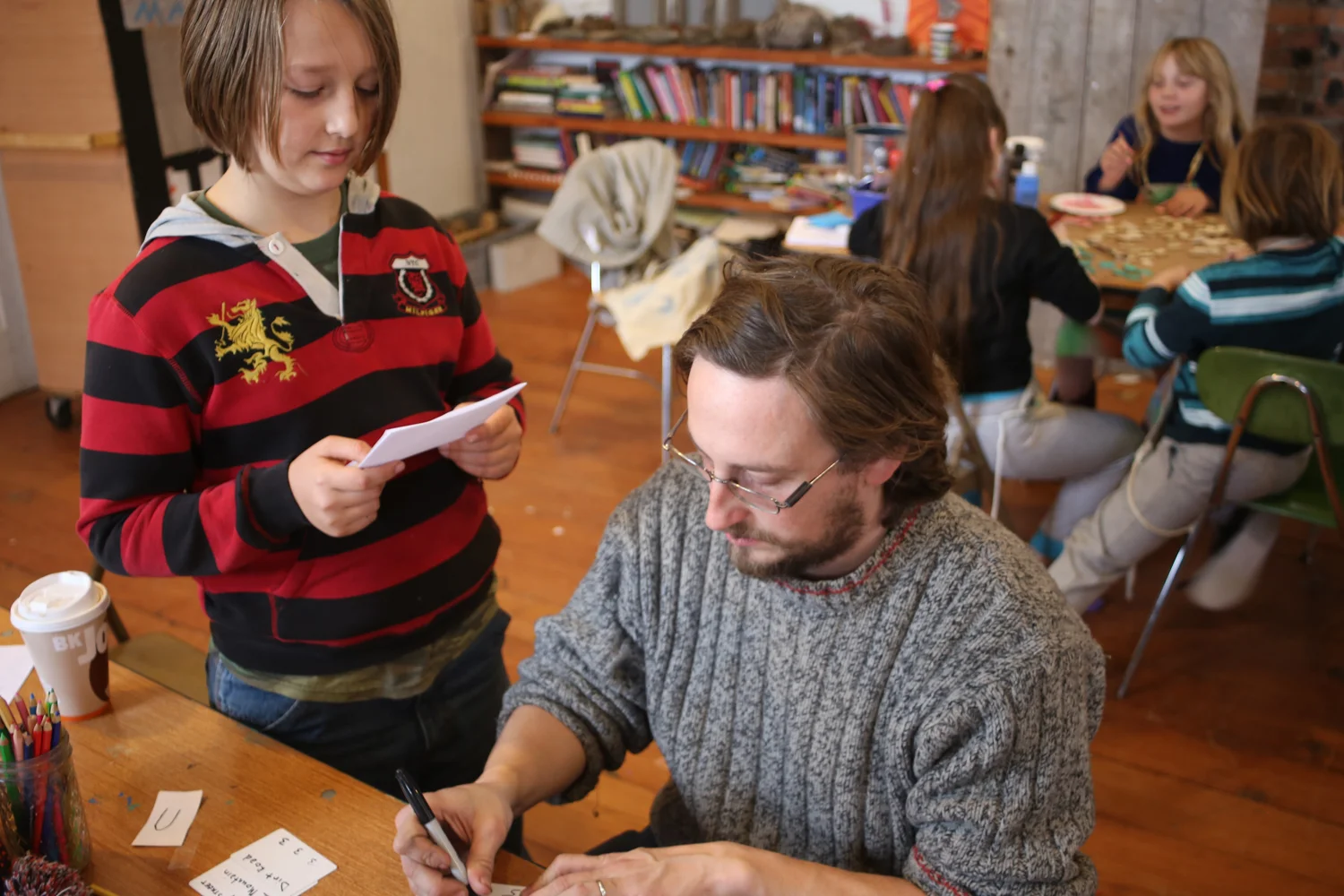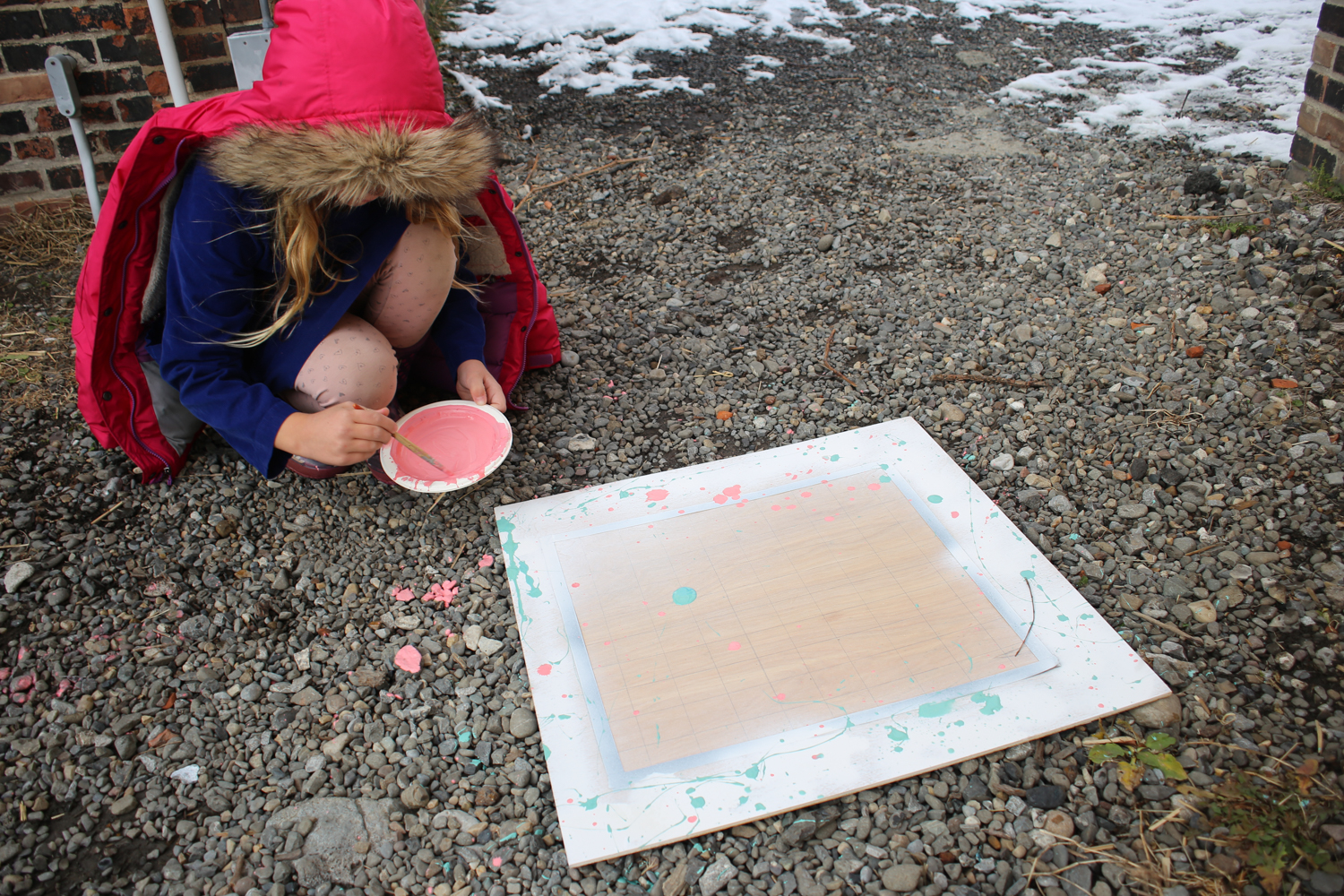DAYTIME CLASSES - FALL 2017
checkmate! analog game design
Mondays, 9:30am - 3:00pm | Ages 8 - 14 | November - December 2017
What does it take to design our own games? Exploring the mechanics, logic, and strategy of play.
Taught by: Will May, David Eustace, and Zebi Williams.
In this 6-week class, we learned about key principles in game design. We began by asking, How do your favorite games work? What’s the difference between a Game and a Toy, between analog games and digital games? We learned to engage in design-thinking and game-testing, using our Design Thinking toolkit to begin testing our own ideas. We analyzed the aesthetic and narrative of games, learning to create consistency in our design choices. We dipped our toes into the math and mechanics of game design, asking: What is probability? How do we manipulate or measure it? We dove deeper into the importance of rules in game play, considering the challenge of communicating rules effectively, and examining the key structures of Games Rules. And we worked to design, build, and prototype our own games!
SCI FI NOTEBOOK
Tuesdays, 9:30am - 3:00pm | Ages 8 - 14 | September - December 2017
A book club and creative writing workshop to re-imagine the world.
Taught by: Ned Depew and Ken Reichl.
In part 1 of this class, students engaged in a 7-week collaborative fantasy writing process: together we imagined other worlds and beings, working to turn our ideas into a coherent story. We studied the narrative arcs of fiction, character and plot development; we wrote back-stories for our characters; and we watched as our story evolved through multiple stages of revision. Then we shifted to examine key themes in science fiction, with an emphasis on changing technologies. Together we learned about simulations in entertainment and science and virtual reality, and we discussed key sci fi questions, like: What is reality? What is consciousness? What is time? We catalogued current technologies that were once imagined in speculative fiction, and created dioramas to imagine our today’s technologies projected 50 years into the future.
TALKING EARTH
Thursdays, 9:30am - 3:00pm | Ages 8 - 14 | September - December 2017
Geological investigations, watershed ecology, and in-the-field research.
Taught by: Lia Friedman.
In this outdoor class, we experienced our environment as scientists and naturalists. We took field trips all over the region: from Cohotate Nature Preserve and North-South Lake to Hearty Roots Farm, Rock City Mushrooms and Art Omi. Along the way we learned to make observations, conduct experiments, and make connections between earth’s cycles: the life cycle, the water cycle, the seasonal cycle, and the nutrient cycle. We studies both forest ecosystems and farm ecosystems, watersheds and water cycles; we discovered the structures of fungi, and the geological layers of the earth. We developed new science vocabulary and formed our own scientific habits, while also performing skits, creating sculptures and paintings, and telling stories. Through a scary encounter with yellowjackets, we practiced not only noticing the scientific world around us, but taking care of each other as we do.
LANGUAGE & RESILIENCE
Fridays, 9:30am - 3:00pm | Ages 8 - 14 | September - December 2017
Exploring different languages through field trips and community-building.
Taught by: Zebi Williams.
We began by exploring the etymology and origin of language, asking questions like: How did humans develop speech? How many languages are spoken in the world, and why do we all speak different languages? We went on field trips to map the language accessibility of Hudson, and to hear from our neighbors about the different languages spoken in our community. We played hand games and street games from El Salvador, had a Spanish-immersion lunch at Lil’ Deb’s Oasis, and went to a Congolese French Immersion cooking class Mrs. Badila’s home. We also partnered with the Hudson Ketermaya Connection to learn about the Syrian refugee crisis, and to create tiny books with stories and notes of support to send to children. The project prompted us to ask questions like: What does it mean to be an immigrant? What does it mean to be a citizen? And we studied the colonization of language, looking at the Language Tree of the world and learning about Haitian Creole. Each class we encouraged each other to try new things, and to be curious in learning about the experiences of our neighbors.
give me SHELTER
Mondays, 9:30am - 3:00pm | Ages 8 - 14 | September - November 2017
Histories, cultures, and practices of shelter-building.
Taught by: David Eustace, Margot Becker, and Alex Guerrero.
In this class we learned a range of building methods, while investigating big questions related to the practice of shelter-building throughout time. We explored nests and insect shelters, investigating how biomimicry might help us to design more sustainable and effective structures. We learned about various Indigenous building practices and wisdom from around the world, including igloos, Viking huts, long houses and mounds. And we looked at different models for permanent shelters and settlements, continuing to ask: What do shelter and design choices tell us about culture? We built our own temporary shelters at the garden and in the woods, learning to thatch a roof and to turn grass into twine. We also learned to “skin” shelters, trying our hand at weaving and felting raw wool. Then we designed and built our own modular, mobile structure.
























































































































































































































